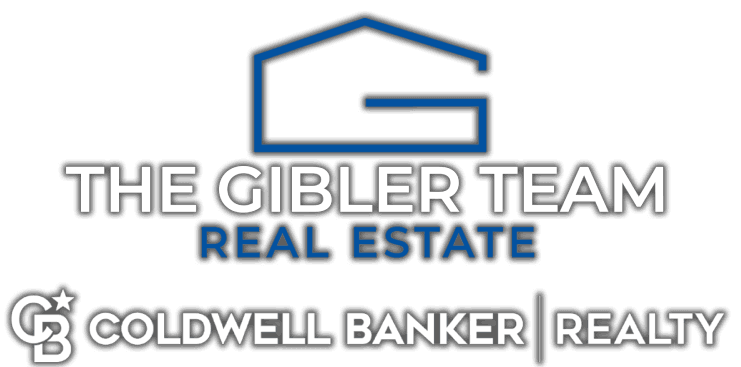What is Real Estate Investing?
Real estate investing is the purchase, ownership, lease, or sale of land and any structures on it for the purpose of earning money. Real estate generally breaks down into four categories: residential, commercial, industrial, and land.
Four Categories of Real Estate

Residential
Used primarily as a home
Single family homes | Townhomes | Condos

CRE
Used primarily for business
Offices | Restaurants | Multi-family homes

Industrial
Used primarily for industrial businesses
Warehouses | Factories | Powerplants

Land
Unused or used primarily as undeveloped land
Farming | Ranching | Unused
- Residential real estate: Residential real estate consists of single-family homes, multi-family homes, townhouses, and condominiums. Some examples include freestanding homes, townhouses, and condominiums that occupants can own. Homes larger than four units are generally considered commercial property.
- Commercial real estate: Commercial real estate is property that is used for the purpose of business. Commercial real estate is classified as office space, retail space, land or multi-family homes. Some examples of commercial real estate properties include business offices (office), restaurants (retail), farmland (land), and large apartment buildings (multi-family).
- Industrial real estate: As the name suggests, these properties serve an industrial business purpose. Some examples include shipping or storage warehouses, factories, and power plants.
- Land: Land generally consists of undeveloped property with no structures on it. There are limited ways to earn money from land as an investment. Landowners can earn money through land usage, such as agriculture, or upon the development or sale of the land.In addition to property types, there are three main ways to make money from real estate investments: interest from loans, appreciation, and rent.
3 Ways real estate investments can earn money
![]()
Loan interest payments
- Potential for regular cash flow
- Less risky than equity, because it’s lower in the capital stack
- Can be unsecured or secured with collateral
![]()
Rental payments
- Potential for regular cash flow
- Requires equity ownership
- Requires hands-on management or delegation
![]()
Appreciation
- Potential for a single lump sum return when asset is sold
- Riskier than debt, because it’s higher in capital stack
- Can be active or passive investment
- Interest from Loans (or, in the parlance of real estate, “debt”): A real estate loan is an arrangement where investors lend money to a real estate developer and earn money from interest payments on the principal of the loan. Debt investing can provide regular cash flow for an investor. Depending on the number of lenders, there can be one or several types of debt within the capital stack of a loan. Types of debt include senior debt, junior debt, and mezzanine debt. Debt can also be secured or unsecured. This distinction defines an investor’s rights in the event of a property’s foreclosure upon the default of a loan. A loan is a type of passive investment used by private equity firms, REITs and real estate investment platforms.
- Appreciation: As with the ownership of any equity, real estate ownership gives an investor the ability to earn money from the sale of that equity. The appreciation, or increase in the value of a property over time, represents the potential profit available to an investor when that property is sold. Unlike debt investments or rental income, a sale provides one large, single return. Equity can generally be categorized as preferred equity or common equity. Equity ownership can be an active or passive investment depending on the position of the investment within the capital stack.
- Rent: An investor who holds equity ownership of a property can earn income by leasing that property. As with the income generated from a debt investment, rental income can provide a regular income stream. Depending on how a property owner manages their real estate (whether independently or through a hired property manager), they may keep all of their earnings or share earnings with a property management company.Each category of real estate and type of investment carries its own set of risks and rewards. Regardless of how you invest in real estate, it’s important to choose investments wisely by testing the strengths and weaknesses of opportunities through a rigorous underwriting process. No matter who performs the underwriting, this due diligence process plays a vital role in determining whether an investment opportunity is financially sound and whether it can meet your financial goals.Many investors like to use the projected rate of return as a key metric when analyzing real estate. However, more seasoned real estate investors will often turn to capitalization rate, or “cap rate,” as a preferred way to assess an opportunity.
Ways to Invest in Real Estate
There are many ways to invest in real estate with varying amounts of money, and varying degrees of time commitment, capital, investment horizons, risk, and return potential. Some earn income and appreciation, and some only earn income. Real estate investment options break down into two major categories: active and passive investments. Here are nine fundamental ways to invest in real estate with options ranging from intense, high-effort to hands-off, low-effort.
Active Real Estate Investing (Doing it Yourself)
Active real estate investing requires a great deal of personal real estate knowledge and hands-on management or delegation of responsibilities. Active investors can work as real estate investors part-time or full-time, depending on the number of their investment properties and the nature of those investments. They usually invest in properties with only one or a few owners, so they bear quite a bit of responsibility in ensuring the success of an investment property. Because of this, active real estate investors need real estate and financial acumen and negotiation skills to improve their cap rate and overall return on investment.
Property-Flipping
House-Flipping
House-flipping is the most active, hands-on way to invest in real estate. In a house flip, an investor purchases a home, makes changes and renovations to improve its value on the market, and then sells it a higher price. House-flipping is generally a short-term investment, because the longer the investor owns the home without leasing it to tenants, the more their expenses add up. This eats away at their return potential when they sell it. Investors can repair or renovate the home to increase its sale price or sell it without making any repairs when its value in the housing market increases.
If you watch HGTV, then you have probably watched a house get transformed from rags to riches in under 30 minutes and sold for a sizeable profit by house-flipping pros. In these shows, house-flippers buy a home that they believe to be underpriced, add value through renovations — such as replacing countertops or flooring, or tearing down walls to change floor plans — and then sell the home at a higher price to turn a profit.
While house-flipping is exciting, it also requires deep financial and real estate knowledge to ensure that you can make over the home within time and budget constraints to ensure that you make money when the home is sold. The success — and the financial burden — of a house flip falls entirely on the investor. You need enough cash to afford a down payment and/or good enough credit to secure a home loan in order to buy a property before another flipper does. It’s a high-pressure and high-stakes real estate investment that makes for great TV, but a good investment opportunity only for certain knowledgeable investors.
Wholesaling
Another property-flipping option is wholesaling. Wholesaling is when an investor signs a contract to buy a property that they believe is priced below market value and then sells it quickly to another investor at a higher price for a profit.
Most often, wholesalers seek out properties in need of renovations and sell them to house-flippers who are willing to perform the renovations to add more value to the property in order to sell it at a higher price. An investor will sign a contract to buy a property and put down an earnest money deposit. Then, they quickly try to sell the home to a house-flipper at a premium, earning a profit. Essentially, a wholesaler gets a finder’s fee for brokering a home sale to a house-flipper. However, unlike traditional property brokers, a wholesaler uses their position as the contracted homebuyer to broker the deal.
Wholesaling is a risky venture, also requiring real estate and financial expertise. It demands due diligence and access to a network of house-flippers in order to find a buyer within a short timeframe to sell the property at a profitable price. Otherwise, like house-flipping, you risk not earning a profit or, worse, losing money.
Rental Properties
Rental properties also require hands-on management, but unlike house flips, they have a long-term investment horizon. Any type of property (residential, commercial, or industrial) can be a rental property. Property owners earn regular cash flow usually on a monthly basis in the form of rental payments from tenants. This can provide a steady, reliable income stream for investors, but it also requires a lot of work or delegation of responsibilities to ensure that operations run smoothly.
First, you must find tenants for your property. This may be easy or difficult depending on your property type and available resources for finding tenants. You are also responsible for performing background screenings for prospective tenants (if you choose to) and for providing legally sound lease agreement contracts with tenants. For each month that you do not have a tenant, you miss out on income from your investment.
Once you have tenants, you have a litany of resultant duties. As the landlord, you are responsible for rent collection, property maintenance, repairs, evictions, record-keeping for the properties, and ensuring legal compliance as a property owner and landlord at all times. Depending on the number and size of rental properties that you own, property management can be a part-time or full-time job.
Some real estate investors who don’t want to handle the management of a property contract a property management company for a fixed fee or percentage fee of earnings. This takes some weight off an investor’s shoulders, transforming the real estate into a more passive investment. However, this tradeoff also means that an investor cedes some control of their properties and lose a portion of their monthly income.
Short-Term Rentals
Short-term rentals allow residents to rent out their homes on a nightly basis, usually as an alternative to a hotel. Short-term rentals are similar to rental properties, but they are confined to residential properties and usually only available for short-term periods. Unlike traditional rentals, short-term rentals, typically powered by companies such as Airbnb and VRBO, let you rent out a portion of your home or your entire home. Owners earn money by renting their property by the night, which can provide regular or irregular cash flow, depending on the demand of the property within its specific market. Property owners are responsible for furnishing and maintaining the home for renters.
Short-term rentals usually require much less expertise and supervision than traditional rentals for several reasons. Third-party websites, such as Airbnb and VRBO, facilitate the booking of the rental property and create the contract agreement between the property owner and renter. Because third-party companies manage several components of the rental process, short-term rental properties can be a part-time job or side hustle.
While short-term rentals can be a lucrative solution to the spare bedroom in your home, before listing, it’s important to be well-acquainted with the laws governing short-term rentals in your area. Homeowner associations have the power to ban short-term rentals, and in some cities, such as New York and Los Angeles, there are existing restrictions against types of short-term rentals. And, even as a short-term landlord, it’s important to make sure that you’re prepared to handle any possible headaches that may come up hosting short-term renters.



